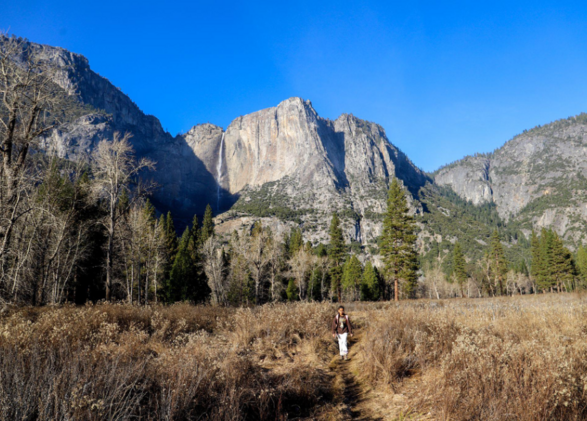Educator Spotlight: Caleb Savage

Growing up in the seaside town of Bourne, Massachusetts, on the popular summer destination Cape Cod, NatureBridge educator Caleb Savage forged an immediate connection to the natural world by way of the ocean. Though he spent much time on the water, Caleb also took several family trips to Maine growing up and it was in the mountains that he discovered a second home.
Caleb described the Maine wilderness as the driving force behind his decision to study Parks, Recreation and Tourism at the University of Maine.
Deciding between living near the mountains or the ocean has always been a dilemma. Therefore, as an Environmental Educator I have chosen specific ecosystems featuring the best of both worlds. I have taught on the shores of coastal southern Maine, in the Great Smoky Mountains and on the waters surrounding Catalina Island.NatureBridge Educator Caleb Savage
After spending last year as a NatureBridge educator at our Prince William Forest campus, Caleb made the move to Port Angeles, Washington, to teach at our Olympic National Park campus. I caught up with Caleb during his week as program coordinator to find out more about his connection to nature and passion for teaching environmental science education:
What is your relationship to nature like? #
Just like we as humans are all interwoven through connections, my relationship is similar in nature in that everything is connected. I always enjoy the solitude of being alone, listening to all of the sounds that are awakened deep in the wilderness.
Growing up, I was fortunate enough to live right next to Four Ponds Conservation Area [in the Pocasset area of Bourne, MA] that I would go explore. Sometimes I was patient enough to fish the ponds, hopefully catching a fish or two! It all really began in my backyard, developing that Sense of Place.
What drew you into the field of environmental education? #
During my first summer after college I worked at Lake George Regional Park in Maine as an assistant Park Ranger. It was there that I had the opportunity to volunteer at their summer day camp working with kids as a Naturalist—mostly building “fairy homes”!
I immediately became hooked on sharing my passion for the outdoors with kids. This then spiraled me into the field, and I haven’t looked back since.
What is your favorite part of your job? #
One of my favorite aspects of my job is that each program I teach is so unique, and always different. There is little repetition in my field of work.
When I am out in the field and one of my students has that “ah-ha” moment where the light bulb goes off—that is what I am always striving for. I have the ability to be so flexible in the programs that I am delivering to my students. [I'm always] finding the ability to collaborate with other educators and test new activities to twist into my teaching.
Why do you believe outdoor environmental science education programs like NatureBridge are so important for young people? #
In an age where technology is so prevalent, I feel it so important for not only young people, but for all people to become disconnected. Often times when students struggle in the classroom, they thrive learning in the outside classroom. They have the chance for hands on inquiry-based learning, where they get to ask questions and then make real connections.
What do you hope is the biggest takeaway for your students? #
When my students leave, I hope that they learn how they are able to become better stewards of their outside world—hopefully taking something positive that they learned and creating an impact in their community back home.




